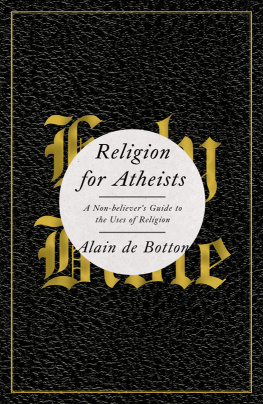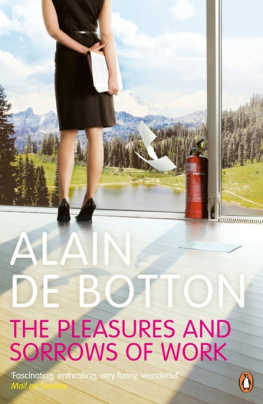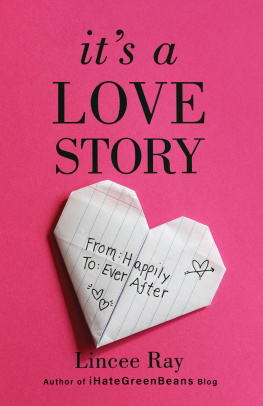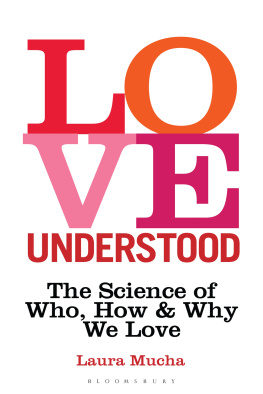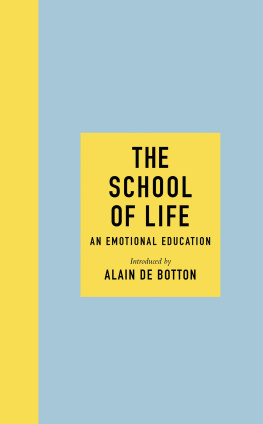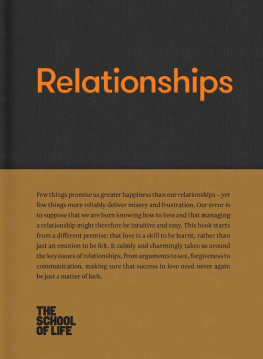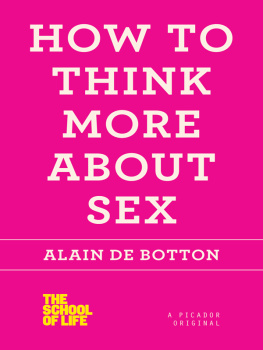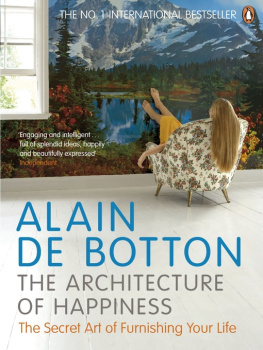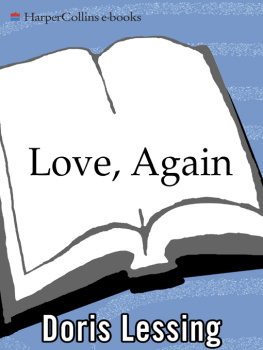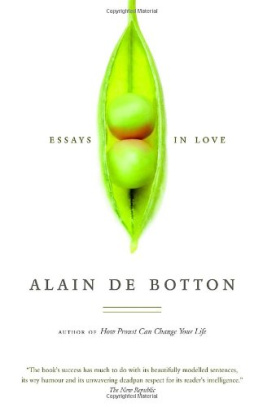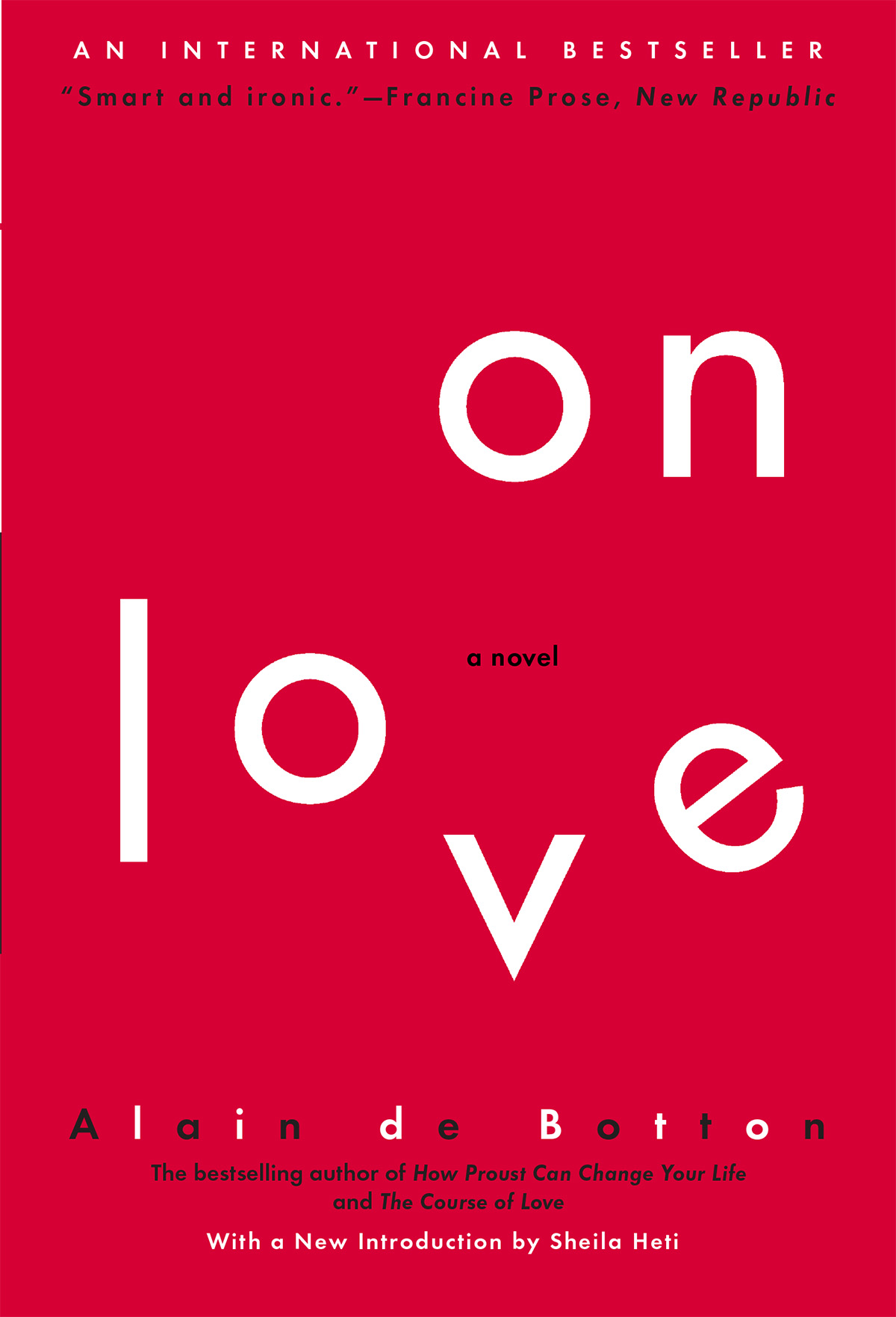on love
ALSO BY ALAIN DE BOTTON
The Romantic Movement
Kiss & Tell
How Proust Can Change Your Life
The Consolations of Philosophy
The Art of Travel
Status Anxiety
Alain de Botton
ON LOVE

Grove Press
New York
Copyright 1993, 2006 by Alain de Botton
Introduction copyright Sheila Heti, 2015
Cover design by Carin Goldberg
All rights reserved. No part of this book may be reproduced in any form or by any electronic or mechanical means, including information storage and retrieval systems, without permission in writing from the publisher, except by a reviewer, who may quote brief passages in a review. Scanning, uploading, and electronic distribution of this book or the facilitation of such without the permission of the publisher is prohibited. Please purchase only authorized electronic editions, and do not participate in or encourage electronic piracy of copyrighted materials. Your support of the authors rights is appreciated. Any member of educational institutions wishing to photocopy part or all of the work for classroom use, or anthology, should send inquiries to Grove Atlantic, 154 West 14th Street, New York, NY 10011 or .
First published in 1993 by MacMillan
Printed in the United States of America
ISBN 978-0-8021-4240-5
eISBN 978-0-8021-8996-7
Grove Press
an imprint of Grove Atlantic
154 West 14th Street
New York, NY 10011
Distributed by Publishers Group West
groveatlantic.com
CONTENTS
INTRODUCTION
On Love has been classified as a novel, but its a very strange novel. It seems that the twenty-four-year-old Alain de Botton strove in the opposite direction of many young writers attempting their first book. Instead of trying to create a story of great uniqueness, full of wondrous new particularitiesinstead of engineering a surprising narrativehe did the reverse (and ended up with something much more unique): he wrote a love story that is a mapthe ur-love story, the most predictable love story given the context of his culture and time. While literature is often used as a map, its rarely written as one, yet this book is that more than anything: a guide through the landscape of contemporary romance. How did he determine the lay of the land? Its as if he laid in a neat pile the many love stories experienced by all the educated, secular, well-off young people in the English-speaking world, and the shape that resulted was the shape of this talesuch loves most typical arc, so the one that many can relate to. (And many didthe book sold more than two million copies.)
While one often encounters the road most traveled in Hollywood love stories, it is strange to discover it in a thoughtful book. Yet it succeeds because its not what happens that mattersits what the various happenings mean, the more banal the better; about how the most predictable happenings cause us to reflect in unpredictable directions, and to feel what we dont admit to feeling in the course of our abbreviated interactions with others. In other words, its a philosophical novel in which love is shown to be the site of greatest paradox: where we become ourselves and lose ourselves, where we show ourselves to be very mighty and very weak, where we lose everything and gain everything. It is in love that we become most ourselves, and most like everyone else.
In one of his recent books, Art as Therapy, de Botton and his coauthor John Armstrong attest that: It lies in the power of art to honor the elusive but real value of ordinary life. It can teach us to be more just towards ourselves as we endeavor to make the best of our circumstances... Art can do the opposite of glamorizing the unattainable; it can reawaken us to the genuine merit of life as were forced to live it. If this is something that the forty-four-year-old Alain de Botton wrote, it was something that the twenty-four-year-old de Botton already knew, and was after: to detail a love story that was not majestically unattainable, but easily attainable. His tale reminded me of a relationship in my early thirties, which lasted a little less than a year, which I now (no credit to me) look back on with the contempt of someone who can no longer remember (except in rare moments) why she loved that man at all. It followed the trajectory of this narrators love affair with Chloe (including the cameo appearance of the airplane, my god, are we all the same person?). Literature would not work if we were all more different than we are alike, but reading On Love , this likeness feels uncomfortably close. Its where the greatest aesthetic discomfort in the book lies, and its also the greatest hurdle to overcome in enjoying the book, for one resists before giving in: I am not like these two! Im different! As de Botton knows, no one wants to relate ones own love story to anotherseven our own love stories which we no longer care aboutbecause the feeling at the core of love is of that loves (and the lovers, and our own) uniqueness. Of course, when reading, one wants to relate, but sometimes you also hate that you canin the same way that later in the book the narrator feels nauseated at hearing, beyond the walls of his hotel room, another couple having sex, and as many people I know turn their eyes from the screen when a man and woman kisssometimes to look in the mirror is embarrassing.
In most novels, the novelist does things to make the reader fall in love with the love objectbut de Botton is not interested in pulling off this trick. We witness the narrator falling in love with Chloe, but we do not fall in love with her as well, all the better to examine his feelings, and her gestures, almost objectively, the way we cannot view our own. We do not swoon or feel delight over Chloes turns of phrasesthough we see the narrator swoon, and we think what we think of him. But whatever we think of him is instructive: its what others think of us as we swoon, flipping through our camera phone to show the un-eager passenger on the train beside us just who is this beauty we are going to visit, who we have been talking about the last half hour.
To witness a man fall in love with a woman who one has not fallen in love with shows up his ridiculousness, helplessness, unoriginality, idealization. Love does not look heroic in this book, it does not look like simple happiness. Dont be deceived, the psychoanalyst and writer Adam Phillips once told me when I said that I envied other couples who looked so happy. By not letting us fall in love with Chloe, this book does just thatit aids us in not being deceived. She is not a perfect woman, and he the luckiest man. She is a woman, and he is a man. Why Chloe? Why not? When I was a little girl, my father would often marvel at how everyone falls in love and everyone is fallen in love with, and that most people end up paired. How strange that a person one finds repulsive can be, for another, the most perfect thing. How does this work? Why dont we all fall in love with the same person, the rest of us loveless and alone? Because, as de Botton knows, we need to love and be loved much more than we need to love and be loved by any one particular one.
In the twenty years since publishing this book, de Botton has published thirteen more, founded the School of Life in Londona storefront at which thinkers and writers and professionals in various fields lead classes and deliver lectures and attempt to impart the sort of wisdom that falls outside the provenance of art, literature, psychology, and philosophy, yet which all these disciplines are designed to explore. The School of Life has its own publicationson money, on sex (this one written by de Botton, with the hilarious title, How to Think More About Sex). In an age of increasing specialization, some of our more fascinating writers are those who refuse to specialize; who willfully (and perhaps naively) try to stand in a space that architecture, economics, biology, and literature might all inhabitor to create such spaces.


